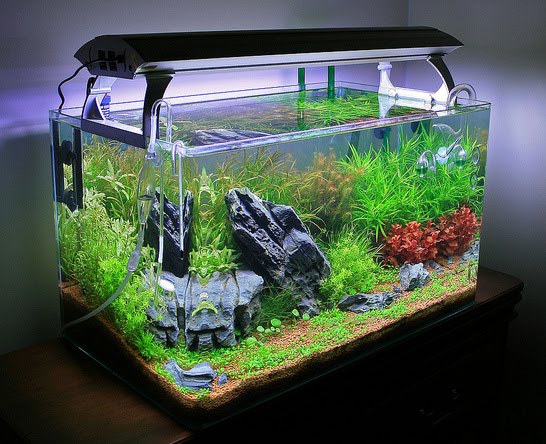
INVASIVES ALERT: HOW YOUR AQUARIUM MIGHT HAVE A "RIPPLE" EFFECT IN MICHIGAN
There is a new collaborative being developed to help educate Michigan residents and pet stores about how they could be unknowingly contributing to the invasive species problem. The Michigan Department of Agriculture and Rural Development, Michigan State University Extension, and U.S. Fish and Wildlife Service are working together through funding from the Great Lakes Restoration Initiative, have created the program called RIPPLE: Reduce Invasive Pet & Plant Escapes to reduce invasive pet and plant escapes.

Invasive plants and fish have moved into Michigan waters from around the world. We are mostly aware of the problems, including their impacts to native species and habitats, as well as costly efforts to control and eradicate them. But what if we could remove one of the sources? That’s where aquarium owners, water garden enthusiasts, and other hobbyists come in, and perhaps even your child’s goldfish bowl.
The message being sent to both retail outlets and consumers of aquarium and water garden products is that if you decide to clean or dispose of aquariums or water gardens, don’t dispose of the plants or animals into natural waterways where they may introduce disease or become established. Do NOT Flush! Alternative ways to safely and humanely dispose of unwanted plants and animals include:
Please report invaders that you might find here in Michigan by visiting the Midwest Invasive Species Information Network and registering the location: http://www.misin.msu.edu/
If you suspect you may have received a regulated invasive species in a plant shipment, contact MDARD immediately:
1-800-292-3939 or MDA-info@michigan.gov
